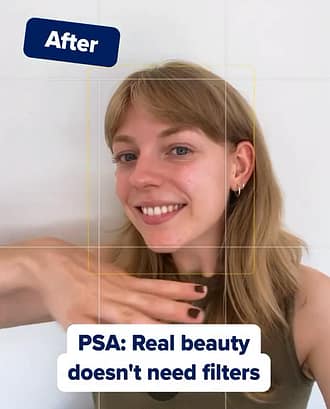Party of a 3-hour special, the apology came at a time when the television host says the way we talk about obesity and health is at a “pivotal moment,”
Oprah Winfrey weight loss special
Oprah Winfrey apologized for her role as a “steadfast participant” in modern diet culture, during a monologue for a 3-hour special with WeightWatchers, now known as WW International.
The former “The Oprah Winfrey Show” host discussed how she regretted many of the specials she did as a television host on weight loss, particularly a now-infamous special where she used a red wagon full of fat to represent all the fat she’d lost while on a liquid-only diet.
Winfrey reflected during the special that this image “sent a message that starving yourself with a liquid diet set a standard for people watching that I nor anybody could uphold,” In fact, Winfrey admitted that, the day after taping that episode, she’d regained the weight from the red wagon.
Now, the television host and cultural icon wants to hold herself accountable. “When you know better, you do better,” she reflected.
The special also featured WW International CEO Sima Sistani, body positivity influencer Katie Sturino, doctors, and celebrities Rebel Wilson, Amber Riley, and Busy Philips.
WeightWatchers lose weight fast
Winfrey’s weight loss has long been documented on television, and the businesswoman said the red wagon represented the “years and years” of an internalized feeling that failing to lose and keep weight off was “my fault,” and the shame that her weight loss struggles had become “a national joke,”
One of the 70-year-old’s most well-known parts of her weight loss journey is her partnership with WeightWatchers, a weight loss company known for their point system-based weight loss program. This year, Winfrey announced that she left the company’s board of directors, a position she’d held for nearly a decade. She also admitted to using weight-loss medication to maintain her weight.
In the special, hosted by WeightWatchers, the company’s CEO Sima Sistani reflected on her and her company’s role that “led and contributed to a diet culture,” and she’d previously viewed weight loss as something everyone can do because she did it.
When asked by Winfrey what she now knows about weight loss that she previously didn’t, the CEO listed biology as a “big part of how people live in their bodies,”
Sistani now says the company’s goal is not to view being overweight, and an inability to lose weight, as a choice, instead seeing that weight loss is about “your physical, emotional well-being,”
Dove body positivity
Companies such as WeightWatchers have been criticized over the years for leading and contributing to a perception of body image that is unhealthy and unattainable. Some companies have attempted to go the other direction and create marketing campaigns that center women with non-photoshopped bodies of all shapes and sizes, such as Dove’s Real Beauty Campaign.
While many at the time applauded Dove’s transparency and seeming willingness to pull back the curtain on the beauty industry, others saw the move as a cynical corporate strategy to increase sales. Dove and other companies, argue some, created the circumstances that led to women internalizing shame for not attaining the beauty of a model and were now attempting to profit from the decades-long frustration with the beauty industry to produce “shame over feeling bad in the first place,”
This is seen in Dove commercials where women describe themselves to sketch artists, or enter through doors labeled “beautiful” or “average” to show women’s internalized shame over their appearance without seeming to reveal “any larger agent responsible for the body image epidemic,”
Rice method Wegovy Ozempic weight loss medication
Currently, weight loss is a multibillion-dollar industry. The industry grew by 4.3% in the United States in 2024, bringing the total worth to $93.8 billion. This is partly due to the increase in drugs such as Ozempic and Wegovy, and weight loss programs, with the former growing to a total of $11.9 billion in 2022 and the latter to $21 billion in 2023. Current estimates put the global industry worth to reach $405.4 billion by 2030.
Diet methods have also been part of this culture. Many cookbooks and online influencers promote the rice method, paleo, and keto diets to their followers for profit.
Lose weight fast
The popular weight loss drug of the moment, Ozempic, a diabetes medication that gained attention as a weight loss drug through its suppression of people’s appetite with the active ingredient semglutide, is currently facing a global shortage. The FDA approved a pharmaceutical company’s use of semaglutide as a weight loss medication under the name Wegovy. This is causing diabetics around the world who rely on the prescription to help regulate their blood sugar increasing stress to secure more for themselves. Supplies are not expected to be at normal levels again until June 2024.
Many argue that weight loss culture creates a level of shame towards the consumers that their own struggles with weight loss are because of their choices, as opposed to other factors outside of their control such as genetics and availability of healthy food, as argued by Sima Sistani. In a video presentation during the WeightWatchers event, writer and culture historian Marisa Meltzer said the current challenge is how weight can be thought of in a “judgment-free way without falling back into the toxic patterns of the past?”
What do you think of weight loss drugs and diets?
What are the biggest stories trending online today? Read the latest here
Published by HOLR Magazine.
Image Credit: @oprah Instagram @dove Instagram




